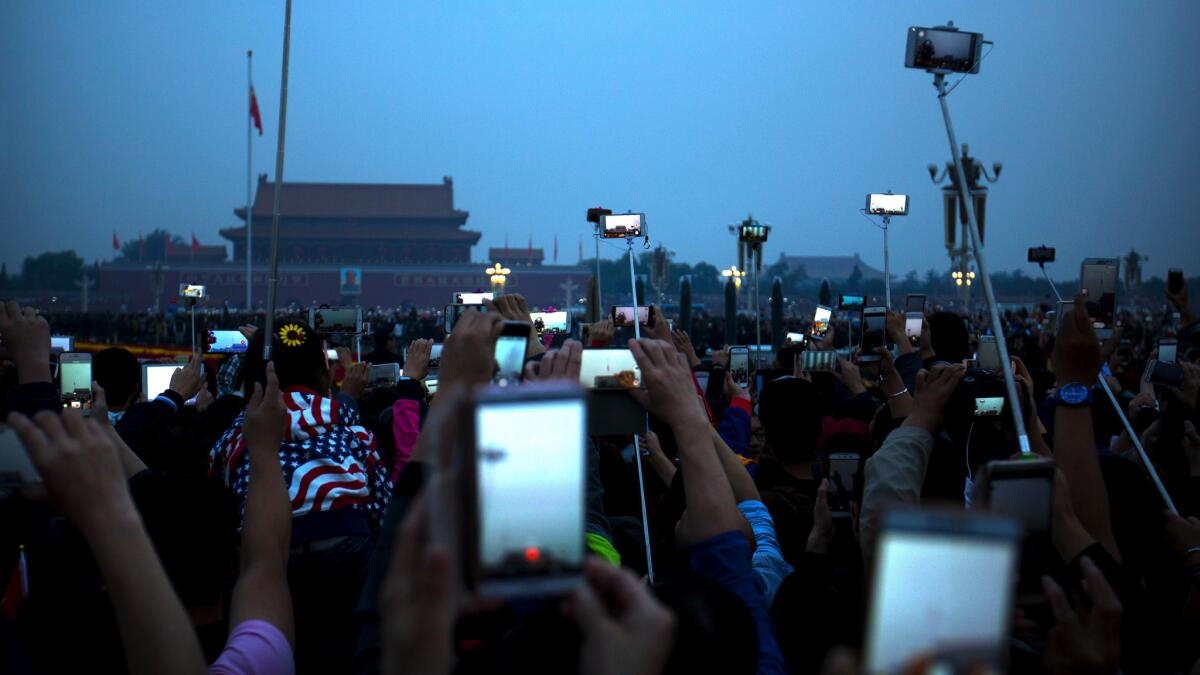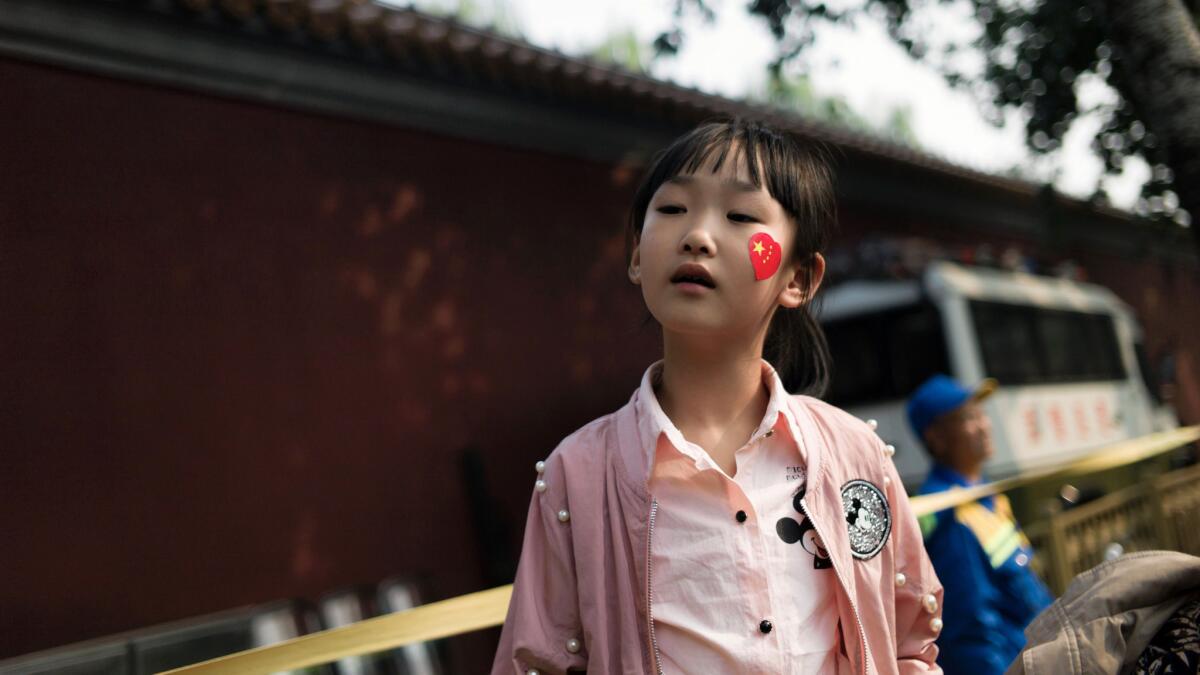Many in China see the U.S. as a greater threat than Islamic State, new report says

A survey from the Pew Research Center found that just many in China see the U.S. as a top threat.
- Share via
Reporting from BEIJING — A vast swath of the Chinese public sees the U.S. as “a top threat,” worse than climate change or Islamic State, according to an independent public opinion survey published Wednesday.
The sweeping report, by the Pew Research Center, a Washington-based nonprofit organization, was conducted among 3,154 respondents in China in the spring. It offers rare insight into public opinion in a country where the government heavily restricts the flow of public information.
For the record:
7:02 p.m. Aug. 22, 2019An earlier version of this article said Chinese President Xi Jinping took office in 2012. He became president in 2013.
Chinese citizens see their country’s role in the world expanding, according to the report — 75% of respondents believe that “China plays a more important role” in global affairs than a decade ago. Yet Chinese are warier of foreign influence, with 77% responding that their “way of life needs to be protected against foreign influence,” up 13% from 2002.
Just under half of respondents said “the U.S. is a major threat,” according to the report, marking “the highest percentage among the seven potential threats tested on the survey.” (The other threats include global economic instability, climate change, cyberattacks and Islamic State.)

The Chinese “think they play a bigger role globally than they did 10 years ago, and they’re pretty happy about that,” said Bruce Stokes, director of Global Economic Attitudes at the Pew Research Center and one of the report’s authors. “And that does reflect an underlying reality, in the sense that it’s indisputable that China is more important. They could be full of themselves — but by the same token, they’re very worried about foreign influence.”
“There’s this combination of self-confidence, and at the same time, real wariness,” he continued. “I can’t explain that, but it seems it’s something we need to pay attention to — because there’s an unease there.”
Since taking office in 2013, President Xi Jinping has cracked down on corruption, stifled dissent and revamped the country’s foreign policy to be more assertive, especially with regard to territorial disputes in the South and East China Seas.
Many Chinese believe that the U.S. is attempting to “contain” China in the South China Sea and thwart its emergence as a rival superpower. (About 59% of the Pew survey respondents voiced concern that “territorial disputes with neighbors could lead to military conflict.”)
Xi has also overseen a resurgence of rhetoric that presents “hostile foreign forces” as a catchall scapegoat for threats to Communist Party rule, both real and imagined. Authorities have used the term to explain the behavior of activist lawyers, a domestic stock market crisis and the Hong Kong protests of 2014.

Stokes said that to administer the annual survey in China, Pew contracts a local research firm, which often rejects some questions as politically out of bounds. “You can’t ask about the government directly,” he said. “You can ask them about Obama, but you can’t ask about Xi. And you don’t ask about the Communist Party.”
The survey was conducted via face-to-face interviews, according to the report. All interviewees were 18 or older, and lived in cities and counties across the country, with the exception of Tibet, Xinjiang, Hong Kong and Macau.
Yet the survey did touch on several domestic issues. Chinese respondents voiced concern about official corruption, air and water pollution, food and pharmaceutical safety, and a yawning wealth gap, which, since the country emerged from communism in the late 1970s, has widened to become one of the world’s worst.
Despite a clear economic slowdown — China’s 2015 GDP growth was its slowest in 25 years — most Chinese remain optimistic about their economic future and confident that their leaders can take on a range of domestic challenges. Most expect progress on fighting corruption over the next five years; nearly half believe the country’s food safety record will improve. About 8 in 10 believe that “when children in the country today grow up they will be financially better off than their parents.”
“The Chinese feel really good about the direction of the country,” said Stokes. “Concern about unemployment is down a bit from 2008. Concern about rising prices is down from 2008. So you don’t see a whole lot in this survey where people are dramatically feeling worse about the economy. Most governments would die for their publics to feel that way.”
For more news from Asia, follow @JRKaiman on Twitter
ALSO
International court’s ruling in South China Sea case won’t end the fight
American football is gaining traction in China
UPDATES:
7:27 a.m.: This article was updated with additional details about the study’s methodology.
This article was originally published at 7 a.m.
More to Read
Sign up for Essential California
The most important California stories and recommendations in your inbox every morning.
You may occasionally receive promotional content from the Los Angeles Times.










